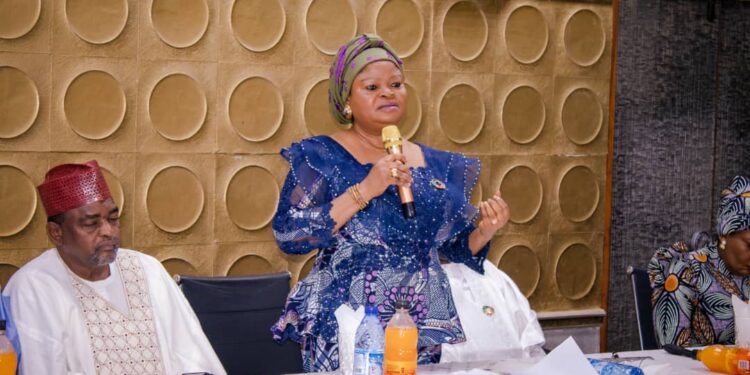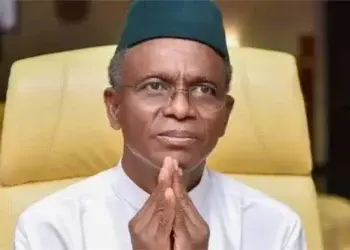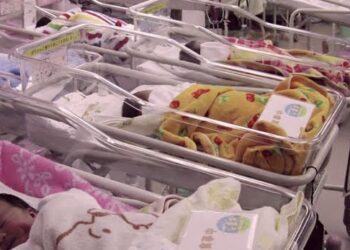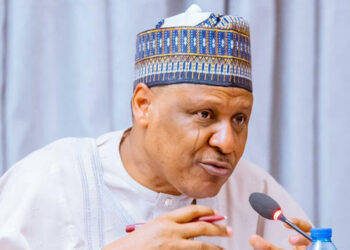The Senior Special Assistant to the President on Sustainable Development Goals (SSAP-SDGs), Princess Adejoke Orelope-Adefulire, has emphasized the role of partnership between the Federal, State, and Local Governments as well as the Federal Capital Territory Administration (FCTA) in accelerating efforts towards attaining the Sustainable Development Goals (SDGs).
The Presidential Aide made this call while speaking at an advocacy and sensitization campaign in Kano State.
A statement issued by Desmond Utomwen, the Special Assistant on Media and Publicity to the SSAP-SDGs, noted that as the global community seeks to accelerate the implementation of the Global Agenda in the Decade of Action for the Goals, there is, more than ever before, the imperative for more strategic collaboration among key stakeholders, particularly the National and Sub-national governments.
According to Orelope-Adefulire, with barely six years to the terminal date of the development agenda, the global community is lagging behind in efforts to attain the SDGs. This, she said, has necessitated the need for all stakeholders, particularly State and Local Governments, to continue fostering the needed partnership to accelerate progress.
The Presidential aide maintained that despite the commitment and efforts as a country, Nigeria is faced with issues and challenges in its desire to achieve the SDGs. To overcome this, she opined that more collaboration is needed. She also noted that many of the challenges are partly due to the now Triple C Crisis – COVID, Climate Change, and Conflicts.
She added that her office will continue to provide the required support, both in the area of key project interventions and technical backstopping for policies and implementation frameworks.
Princess Orelope-Adefulire highlighted some of the key challenges and charged state governments to double their efforts to reverse the trend.
“In Nigeria, the Multidimensional Poverty Index Report (2022) shows that about 63 percent or 133 million Nigerians are multi-dimensionally poor. The report shows that poverty levels vary significantly across states and geopolitical zones. Specifically, multidimensional poverty is higher in rural areas, where 72 percent of people are poor, compared to 42 percent in urban areas. Overall, the report revealed that 65 percent of poor people live in the North, while 35 percent live in the South.
“Relatedly, the National Bureau of Statistics’ Multiple Indicator Cluster Survey Report (2022) shows that the under-5 mortality rate, which represents SDG 3.2.1, is 102 per 1,000 live births – with Sokoto, Kebbi, Katsina, and Jigawa recording the highest, and FCT, Benue, Kwara, and Ebonyi States recording the lowest.
“On SDG 4, quality education among children and adolescents aged 7-14 years, only about 27 percent have foundational reading skills, and 25 percent have foundational numeracy skills. This translates to a low out-of-school rate found in Ekiti State at (2%) and Imo (1%), while the highest rates are found in Kebbi (65%) and Zamfara and Bauchi States both at 61%.
The SSAP-SDGs noted that the Federal Government has demonstrated strong commitment towards the implementation of the SDGs in Nigeria and requires the sub-national governments to match these efforts, particularly as the tier of government closest to the people. She noted that institutional frameworks have been established at the national and sub-national levels to guarantee effective implementation of the SDGs. The SDGs require a whole-of-society approach and clearly cannot be achieved with stand-alone policies and projects. They must be carefully integrated into national and sub-national policies and development plans.
“As we approach the 2030 deadline, we must recommit to accelerating the implementation of the SDGs, especially at the state and local government levels. As part of the transformative actions needed to deliver on the SDGs, we need the expertise and resources of the public and private sectors, the UN Development System, development partners and the donor community, academia, civil society, and concerned citizens in support of the SDGs,” Orelope-Adefulire stated.
In his remarks, the Governor of Kano State, Abba Kabir Yusuf, who was represented by his Chief of Staff, Hon. Shehu Shegagi, maintained that the state is committed to working with the Federal Government in a bid to deliver on the Targets of the SDGs while leaving no one behind.











